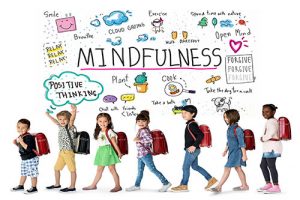Everyone wants to have a sense of belonging
Science tells us more and more every day - this includes helping us understand children who lack necessary learning skills.
We at Capulum College aim to help create a socially inclusive society, where everyone feels valued, everyone’s differences are respected, and their basic needs are met so they can live in dignity because everyone wants to have a sense of belonging.
 To be recognised and accepted into peer groups is important for learners’ academic, social, and psychological development. The way teachers can contribute to children’s social inclusion is highly relevant.
To be recognised and accepted into peer groups is important for learners’ academic, social, and psychological development. The way teachers can contribute to children’s social inclusion is highly relevant.
Here are some interesting facts about learning and the brain.
- Stress needs to be managed because it can cause weakened memory and may even speed up mental decline later on in life. Mindfulness training, positive self-talk and effective organisation skills are encouraged.
- It has been discovered that we produce new nerve cells in the parts of the brain associated with learning, memory, and emotion throughout adulthood. This means we are never too old to learn – we can teach old dogs new tricks!
- It is believed that forgetting plays a positive role in learning because when we forget something and are forced to go back and find the information, it becomes strongly imprinted on our memories.
- It is important to be in a comfortable study space – neither too hot nor too cold – because room temperature can affect the ability to learn.
- Researchers believe that the brain decides what to learn. There is so much information sent to us every day – some of it we remember, some we don’t. This is because the brain decides which sounds, sights, and sensations are important to us as individuals.
- We are able to recall new information better when it is presented in a virtual environment as opposed to a two-dimensional computer, on paper, or a chalkboard.
- Uncertainty helps us learn better because when a situation is expected and the outcome is obvious, our brain doesn’t need to do much. In an unpredictable situation the brain is forced to work harder. Looking for new experiences and opinions is a good way to quicken the brain and to keep learning.
- Studies show that encouraging a child to be curious from an early age can help improve a learner’s maths and reading skills.
- It has been proven that children perform better when they sit up straight than when they are slumped over their desks. This confident and powerful position helps learners focus – especially when they are stressed.
- While you are sleeping, the brain is sorting through your memories, keeping those that will be important for later decision-making – and it filters out those that are less important.
 Perhaps your child feels socially excluded… We have a professional, empathetic team that can help you – and help your child achieve that sense of belonging that is so very important to all of us.
Perhaps your child feels socially excluded… We have a professional, empathetic team that can help you – and help your child achieve that sense of belonging that is so very important to all of us.










